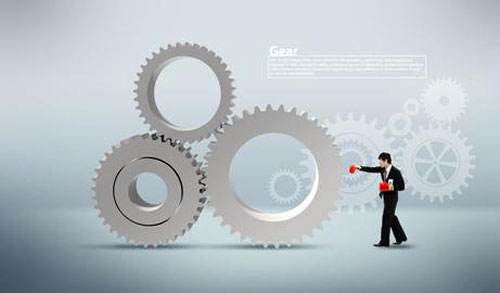
当前课程知识点:History of Western Civilization 全英文西方文明史 > Chapter 1 Early Greece > 1.2 Greek Gods > 1.2.1 Text
返回《History of Western Civilization 全英文西方文明史》慕课在线视频课程列表
1.2 Greek Gods
Hi this is the second topic of Chapter one, the Greek Gods
1. There were many temples and shrines in ancient Greece. A shrine is a place of worship which is associated with a particular god; shrine also can be called sanctuary. Olympia and Delphi were the two greatest Pan-Hellenic sanctuaries. Pan-Hellenic means all Greek. Because both Olympia and Delphi are far from the powerful city states like Athens, Sparta and Corinth, it is convenient for all Greeks to meet there, no matter friends or enemies.
2. This is the today’s Olympic flame lighting ceremony from the ancient temple in Olympia. Since 776 B.C. every four years all athletes from Greek world competed in the Olympic Games. All wars should be stopped during this event. Remember at that time the competition could be deadly, for example in wrestling, there would be no end until one side gives in. Of course for the dignity many athletes chose death rather than defeat.
3. All Greeks go to the Temple of Apollo for oracles in Delphi; this is the original temple,
4. Today only the ruins left. Apollo is the God of sun, light, music and art. What is an oracle? People asked Apollo’s advice or prophecy, a priestess will give an answer on behalf of Apollo which called an oracle
Pray and make regular offerings to gods is an important part of all Greek’s religious life. The relation between gods and people is actually ambivalent, not very clear. Gods are immortals, they never die. They have not only super power but also have weakness like human. They control the human destiny, and sometimes they do something immoral like Zeus always seduced many women, and have many children with them, we called them semi god, because one parent is god, the other, human.
5. This is the story of Prometheus he made human out of water and earth, he stole fire from Zeus and gave it to human. Zeus was very angry, he ordered Prometheus to be chained to a rock. Every day a horrible eagle would come to tear his liver. Because he is god, never die. His liver would grow back every night to be eaten again the next day. Prometheus made and helped human, and he is suffering for human forever. I think he is the greatest among all Greek gods
6. And this is Pandora's Box. After Prometheus created human, he and his brother Epimetheus both acted as the representatives of human. Prometheus is smart, but his brother is foolish. We know Zeus punished Prometheus, but this is not enough, he also wanted to punish people. He ordered the first woman Pandora to be made out of earth and sent her to Epimetheus. Pandora in Greek means gift. Pandora carried a box. When it was opened, death, sickness, evil and misfortune all flew out. Then the box was closed, hope was left inside. Today "to open a Pandora's box" means to do or start something that will cause great and unexpected troubles.
7. The twelve Olympians. They are twelve major gods and goddesses live atop Mount Olympus. They were a family led by Zeus, they defeated the previous generation of ruling gods, the Titans.
This is Zeus, Roman name Jupiter. King of the gods and ruler of Mount Olympus; god of the sky, lightning, thunder, law, order and justice. His symbols: the thunderbolt, eagle and scepter. Even the gods who are not his children address him as Father, and all the gods rise in his presence. We know his weakness; he loves beautiful women and has many children out of his marriage with Hera.
Hera was the goddess of marriage, women, childbirth and family. She always tries to get revenge on Zeus' lovers and their children.
8. Poseidon. Brother of Zeus, God of the seas, water, storms, hurricanes, earthquakes and horses. Like many other gods he had many lovers.
9. Athena. Daughter of Zeus, Goddess of wisdom, knowledge, reason, literature, handicrafts, science, and warfare. She defeated Poseidon in a competition over patronage of Athens by creating the first olive tree, thus became the protector of Athens, The Parthenon on the Athenian Acropolis is dedicated to her.
10. The birth of Athena was a miracle. Zeus’s first wife was pregnant. Zeus was told that she would bear children wiser than he himself. Zeus didn’t like that to happen. He swallowed his wife, and then he suffered from a terrible headache. Prometheus, maybe another god, cut off Zeus’s head and Athena jumped out, fully grown and armed.
11. Apollo and Artemis are children of Zeus, they’re twins. Apollo is the god of sun, light, music, poetry, art, oracles, plague and medicine, and the patron of Delphi. He is also the leader of the nine daughters of Zeus called Muses, goddesses of literature, science, and the arts. Apollo’s sister Artemis is the Goddess of the hunt, forests, hills, and the moon.
12. Ares, son of Zeus, God of war and violence. We used the word today "martial" to describe things relating to soldiers or war. This world came from his Latin name Mars.
13. Aphrodite, daughter of Zeus, Goddess of love, beauty and sexuality. Her Latin name Venus. This is Venus de Milo, one the most famous artwork in Louvre Museum, Paris. This is Botticelli’s Birth of Venus.
14. Dionysus, son of Zeus, God of wine, festivity, ecstasy and madness, patron god of the art of theatre. He is the youngest Olympian god and the only one has a mortal mother. Wine in Greek is very important, and the worship of Dionysus played an important role in the Greek culture. German philosopher Friedrich Nietzsche believed Dionysus represented the unrestrained joy, chaos and ecstasy, while Apollo represented the ration and order. Nietzsche also believed Greek Tragedy was entirely based on suffering of Dionysus.
Chinese mythology is not well developed but we still have a rich legacy. 西游记 the Journey to the West is a great novel, the plot is quite similar to the Odyssey.
盘古Pangu is a god who created the world. Pangu emerged from inside something like a huge egg made of stone. He held a huge axe and kept chopping for 18,000 years, created the Earth and the Sky. He killed a big turtle and cut off its four legs to support the heaven. After hard working he died. His breath became the wind, his sweat become rain, his voice become thunder, his two eyes the Sun and the Moon, his bones mountains, his blood rivers, his muscles the land, and his fleas became animals.
女娲Nüwa is a goddess who created human with yellow earth and water. One day the god of fire and god of water fought each other. The god of fire lost, he crashed to a mountain in the southeast, that mountain is one of the four legs of the turtle supporting the sky. The land was falling there and this is why all rivers in China go to the east. Nuwa smelted together five-colored stones to patch up the sky. When all the stones were used up, there was still a hole. Nvwa changed herself into a five-colored stone, flew to the sky and finally fixed the sky.
Greek gods are great but they did something terrible. They directed the Trojan war and the tragedy of Oedipus the King. When Greek gods are enjoying their feast at the palace atop the Olympic. Chinese Pangu and Nvwa already died. They worked hard for people and scarified for people. I think they are more human and they are selfless to human.
15. Now let’s look at the Key words: Delphi and oracle, Pandora's Box, Athena, Apollo, Aphrodite, Dionysus.
返回《History of Western Civilization 全英文西方文明史》慕课在线视频列表
-1.0 Introduction
--1.0.3 Exercises
-1.1 Greek Bronze Age and Dark Age
--1.1.3 Exercises
-1.2 Greek Gods
--1.2.3 Exercises
-1.3 Archaic Greece
--1.3.3 Exercises
-1.4 Athens and the Persian Wars
--1.4.3 Exercises
-1.5 Discussion
-2.1 War and politics in the fifth century BC
--2.1.3 Exercises
-2.2 Greece in the fourth century BC
--2.2.3 Exercises
-2.3 Classical Greek Philosophy
--2.3.3 Exercises
-2.4 Athenian Drama
--2.4.3 Exercises
-2.5 Alexander the Great and Hellenistic World
--2.5.3 Exercises
-2.6 Discussion
-3.1 Roman Kingdom
--3.1.3 Exercises
-3.2 Early Republic
--3.2.3 Exercises
-3.3 Mid-Republic
--3.3.3 Exercises
-3.4 Late-Republic
--3.4.3 Exercises
-3.5 End of the Republic
--3.5.3 Exercises
-3.6 Discussion
-4.1 Pax Romana 1
--4.1.3 Excecises
-4.2 Pax Romana 2
--4.2.3 Excecises
-4.3 Crisis of the Third Century and Constantine
--4.3.3 Excecises
-4.4 The Victory of Christianity
--4.4.3 Exercises
-4.5 The Fall of the Roman Empire
--4.5.3 Exercises
-4.6 Discussion
-5.1 Early Middle Ages
--5.1.3 Excecises
-5.2 Carolingian Dynasty
--5.2.3 Excecises
-5.3 High Middle Ages
--5.3.3 Excecises
-5.4 Late Middle Ages 1
--5.4.1 Excecises
-5.5 Late Middle Ages 2
--5.5.3 Excecises
-5.6 Discussion
-6.1 The Renaissance
--6.1.3 Exercises
-6.2 Protestant Reformation
--6.2.3 Exercises
-6.3 Italian Wars and Rise of Russia
--6.3.3 Exercises
-6.4 Age of Discovery
--6.4.3 Exercises
-6.5 French War of Religion and Russia’s Time of Trouble
--6.5.3 Exercises
-6.6 Discussion
-7.1 The Thirty Years War
--7.1.3 Exercises
-7.2 English Revolution
--7.2.3 Exercises
-7.3 Three Absolute Monarchs
--7.3.3 Exercises
-7.4 Dutch Golden Age
--7.4.3 Exercises
-7.5 Science and Culture in the 17th Century
--7.5 Text
--7.5.3 Exercises
-7.6 Discussion
-8.1 The United Kingdom
--8.1.3 Exercises
-8.2 The American Revolution
--8.2.3 Exercises
-8.3 The French Revolution
--8.3.3 Exercises
-8.4 Age of Enlightenment
--8.4.3 Exercises
-8.5 West after the 18th century
--8.5.3 Exercises
-8.6 Discussion

